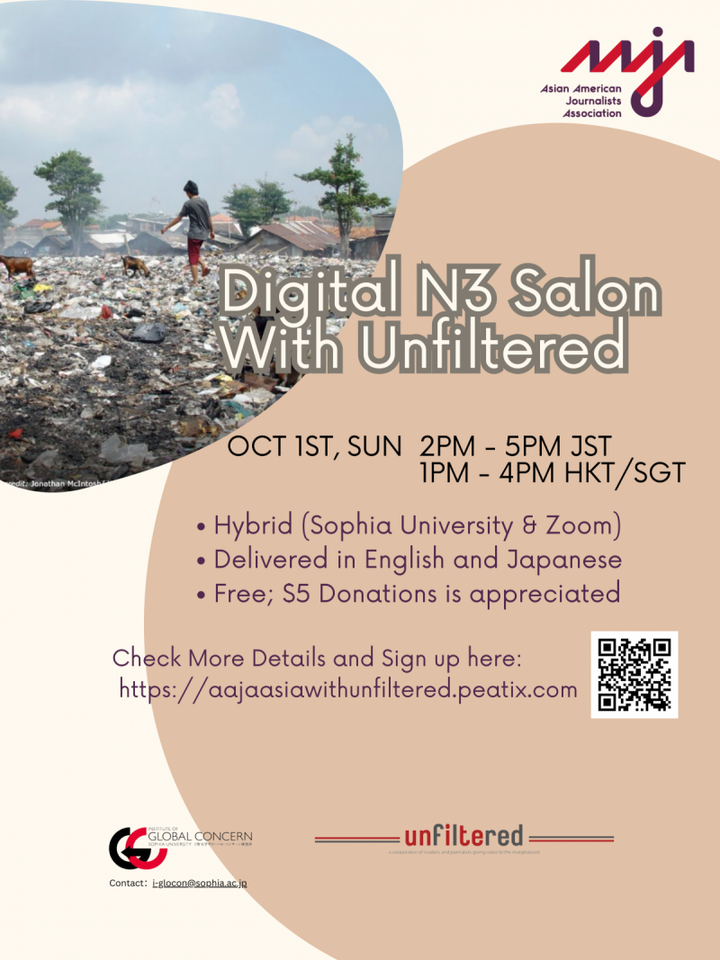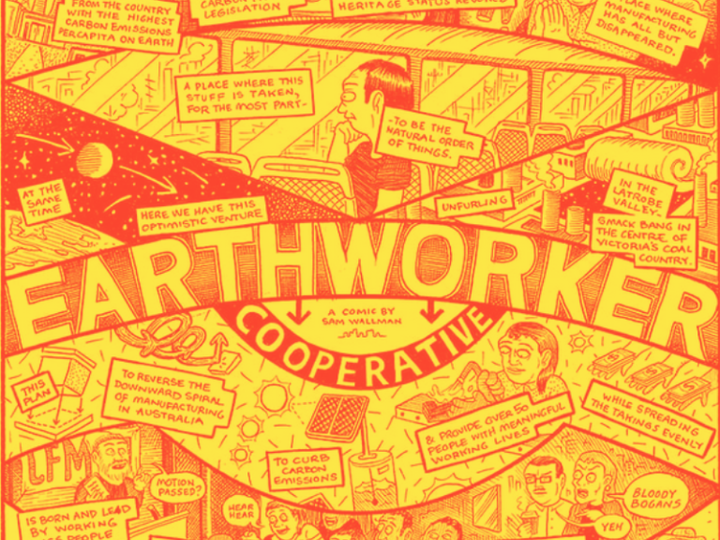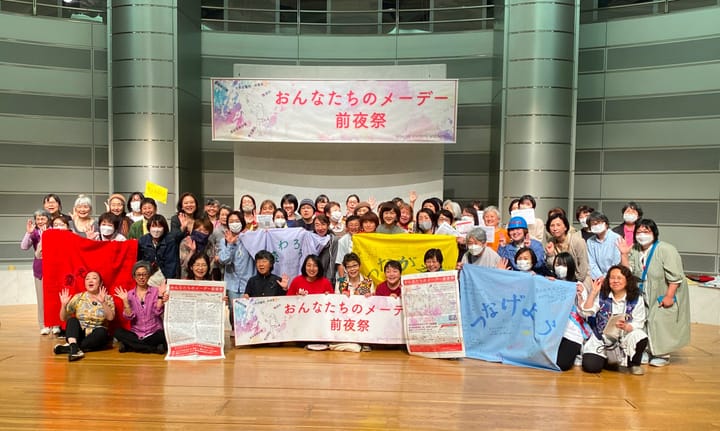Public health workers and COVID-19: Overworked and struggling to meet the demands

Labour Union fights for change for Japanese Public Health Care Workers
Sachie Akasugi (not her real name) is beyond exhausted. A worker at a public health center in Osaka, Akasugi and her colleagues are part of Japan’s first line of defense against COVID-19. With overtime hours in excess of 150 hours a month, the pandemic has pushed their already limited resources to the brink.
“The word karōshi (death by overwork) has crossed our minds,” said Akasugi, a public health center worker in her 50s, during a phone interview. Based on the Labor Ministry guidelines, a monthly average of 80 hours of overtime is considered to induce karōshi.
Tokyo saw COVID-19 cases hitting an all-time high after the New Year celebration, with numbers topping the 1,000 mark for the first time since the virus spread, and besting that figure again just before the Golden Week holidays in May. Osaka Prefecture has about half of Tokyo’s population of 8.8 million, and is currently an epicenter of the latest wave in Japan. Akasugi and her colleagues, already on the edge of a nervous breakdown, find themselves closer than ever to a breaking point. Hokenjō, public health centers, were first established in 1937 and are run by local governments as the frontline of health services and information in Japan. Ordinarily, the country’s 470 centers handle issues ranging from the health of pregnant women and infants to food poisoning, as well as mental health and suicide prevention, among others. During the pandemic, however, they have been flooded with phone calls concerning everything from COVID-19 symptoms to PCR tests and hospitalization to contact tracing.
Cutbacks and the Price of Delay
Public health centers have suffered gradual cutbacks since 1994 as Japan aimed to shrink the government’s footprint, and the administration of the centers was transferred to local municipalities. As a result, the number of centers and affiliated workers in Osaka Prefecture was cut in half. Akasugi’s center, for instance, ends up serving a district population of about 260,000 citizens with just 13 staff members.
“When we have 35 cases a day, we are already over capacity,” Akasugi said. “And that’s if we can attend to everyone on that day. But there are patients waiting for us for days.”The Osaka Public Sector Workers’ Union filed a demand with the government in mid-January to systematically increase manpower, and an online petition launched on Change.org gathered more than 64,000 signatures.
Most citizens never reach out to hokenjō, instead contacting their doctors or other medical professionals directly. For pregnant women, however, and those who live with rare health conditions, suicidal tendencies, alcoholism or other forms of addiction, it is crucial that these centers are available when they need care.
If a person has self-injured and is clearly suspected of having a mental disorder, the police are notified. Staff like Akasugi then go to the police station to meet the person, interview them, and connect them to a medical examination. Currently, suicide and attempted suicide rates are on the rise, particularly among women, along with COVID-19 cases. In March, the number of suicides among women surged in 10 consecutive months by 30 percent.
As Akasugi knows, therefore, any delay could lead to serious consequences. “At the end of last year, I promised a client whose suicidal urges increase around the year-end that we would hold on together,” she says.
And yet, most of Akasugi’s time has been consumed with calls about new COVID-19 cases, and tracking the health of all the other Corona patients she has helped. Public health workers across Japan respond to calls from positive patients and find them available hospital accommodation, and also check their daily physical condition. These days, it takes between five to eight hours to locate an open bed for one patient. The health care workers are also responsible for filing data on hospital patients with the prefectural office, and staff time is additionally occupied listening to people who call to complain that they can’t get connected, or who have been rejected by hospitals.
These calls make it even more difficult for someone who has an alcoholic mother, a father with a learning disability, a sick older brother, an older sister who is suicidal, or a reclusive younger brother to get help from the hokenjō. There is also the work of counseling and coordinating what to do with children in these circumstances, like the 17-year-old whose mother committed suicide and was being abused by his father. He had nowhere to go.
Even as hokenjō directors tell their staff not to work overtime, people like Akasugi can’t help but consider the alternative.
“COVID-19 patients wait for days to be treated,” she said, “and there will be new cases tomorrow that we have to attend to on top of the patients on the waiting list. It always looks like we won’t be home until late.”
Even if Akasugi finishes in time to go home at a humane hour, she tries to help her colleagues finish their work, too.
“If you ask us what we want right now…sleep. Just let us sleep,” Akasugi said, adding that she is getting only two to four hours on average these days. “The house is a mess, and one of my co-workers was too busy to notice that her child has not been going to school.”


New Recruits and Worker Rights
There is also concern for young people entering the field, as new graduates arriving during the pandemic find themselves in trying circumstances.
According to Akasugi, new health care workers are also having difficulties coping. They have no chance to feel a sense of accomplishment, or rest their mind and body, after a day of feeling helpless handling complaints from the people they are serving–and sometimes getting yelled at. “We need to train young people, but we can’t,” she said. “Pretty soon, they will end up leaving.”
Akasugi leans on her experience to get her through, but she is also grateful that her union helps her to keep her peace of mind.
“We are colleagues, and we all support each other,” Akasugi said. “It’s hard work for everyone. Union members are the ones you can talk to in peace. That is support. Since we are in the same workplace with our union mates, we all share our feelings and help each other out.”
“Because of the pandemic, I am not able to participate in the labor union activities, but the full-time union officials are taking care of me and covering for me through phone calls and e-mails. The labor union has become a source of support,” Akasugi continued. “Even before Corona, the work at the public health center was often heavy, and residents sometimes pointed out various problems. In times like this, the union is there for us and has saved us many times. I think it’s important to be able to speak out.”
This article mentions thoughts of suicide. If you are in crisis or you think you may have an emergency, call 110 immediately. If you’re having suicidal thoughts, call TELL Japan’s Lifeline at 03-5774-0992* to talk in English to a skilled, trained support worker in Japan. If you are located outside of Japan, please contact your local suicide prevention lifeline. *currently the lifeline is operating on adjusted hours due to COVID-19 restrictions. Please check their social media accounts for their daily schedule updates.



